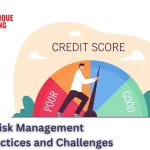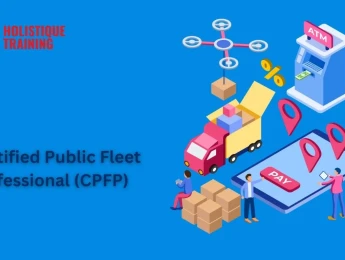The Professional Collection Manager (PCM) training course is designed to equip credit and collections professionals with the skills and knowledge to manage and optimise accounts receivable effectively. As businesses strive for efficient cash flow management, the role of a Collection Manager has become increasingly vital. This course covers the fundamental and advanced aspects of credit management, collections strategies, customer relationship management, and legal considerations, providing participants with the tools needed to succeed in this challenging field.
Throughout the PCM training, participants will explore key topics, including risk assessment, credit scoring, negotiation techniques, debt recovery strategies, and applying ethical and legal practices in collections. They will learn how to manage customer accounts proactively, mitigate risks associated with non-payment, and implement strategies that ensure timely collection without damaging client relationships. By focusing on industry best practices, participants will understand how to create sustainable processes that support their organisation's financial health.
The PCM training course is ideal for credit and collections professionals, including Collection Managers, Credit Analysts, and Account Managers who aim to advance their careers in accounts receivable management. The course combines theory with practical insights, allowing participants to practise collection strategies through case studies and role-playing exercises. Upon completion, participants will have a deeper understanding of collection management and will be well-prepared to contribute to their organisation’s financial goals by enhancing cash flow and minimising bad debt.
Upon completion of this course, participants will be able to:
- Provide an understanding of key principles in credit and collections management.
- Equip participants with skills to assess credit risk and implement effective collection strategies.
- Teach negotiation and communication techniques for successful debt recovery.
- Develop ethical practices and legal compliance in collections management.
- Prepare participants for efficient and sustainable accounts receivable management.
This course is designed for credit management, collections, and accounts receivable professionals who wish to strengthen their skills and advance their careers as Collection Managers. It is particularly suited for:
- Collection Managers and Supervisors
- Credit Analysts and Account Managers
- Accounts Receivable Specialists
- Financial Controllers and Accountants
- Business professionals involved in credit and debt recovery
The PCM training course uses an interactive and hands-on approach to learning, combining theory with practical application. Participants will engage in instructor-led discussions, case studies, and scenario-based exercises that reflect real-world challenges in collections management. Each course section is supported by group activities and role-playing exercises, where participants can practise negotiation skills, client communication, and strategic decision-making.
The course also provides sample credit evaluation forms, reporting templates, and negotiation scripts, giving participants tools that can be directly applied to their work. Practice exercises focus on managing challenging cases, enabling participants to explore different strategies for dealing with overdue accounts and difficult clients. Digital resources, such as study materials, self-assessment quizzes, and mock scenarios, reinforce learning and enable participants to practice independently.
Throughout the course, experienced instructors provide feedback, offering insights into best practices and areas for improvement. This structured approach ensures participants understand theoretical concepts and build the confidence and skills to effectively manage accounts receivable.
Day 5 of each course is reserved for a Q&A session, which may occur off-site. For 10-day courses, this also applies to day 10
Section 1: Introduction to Credit and Collections Management
- Overview of the role of a Collection Manager
- The importance of accounts receivable in cash flow management
- Key challenges in credit and collections management
Section 2: Credit Risk Assessment and Customer Evaluation
- Methods for assessing creditworthiness
- Developing and using credit scoring models
- Identifying high-risk accounts and setting credit limits
- Establishing criteria for customer evaluation
Section 3: Collection Strategies and Debt Recovery Techniques
- Designing a collection strategy that aligns with organisational goals
- Proactive account monitoring and follow-up techniques
- Strategies for prioritising collections and managing overdue accounts
- Effective approaches to debt recovery
Section 4: Negotiation and Communication in Collections
- Techniques for effective communication with clients
- Managing difficult conversations and objections
- Developing negotiation skills for debt settlement
- Balancing assertiveness with empathy in collection calls
Section 5: Legal and Ethical Considerations in Collections
- Understanding legal requirements in collections management
- Compliance with regulations related to debt recovery
- Ethical practices and maintaining a positive brand image
- Case studies on ethical challenges in credit and collections
Section 6: Reporting and Performance Measurement
- Key metrics for evaluating collections performance
- Creating and interpreting accounts receivable reports
- Tools for tracking and improving collection efficiency
- Identifying and reducing collection cycle times
Upon successful completion of this training course, delegates will be awarded a Holistique Training Certificate of Completion. For those who attend and complete the online training course, a Holistique Training e-Certificate will be provided.
Holistique Training Certificates are accredited by the British Assessment Council (BAC) and The CPD Certification Service (CPD), and are certified under ISO 9001, ISO 21001, and ISO 29993 standards.
CPD credits for this course are granted by our Certificates and will be reflected on the Holistique Training Certificate of Completion. In accordance with the standards of The CPD Certification Service, one CPD credit is awarded per hour of course attendance. A maximum of 50 CPD credits can be claimed for any single course we currently offer.
- Course Code PO1-144
- Course Format Classroom, Online,
- Duration 5 days













